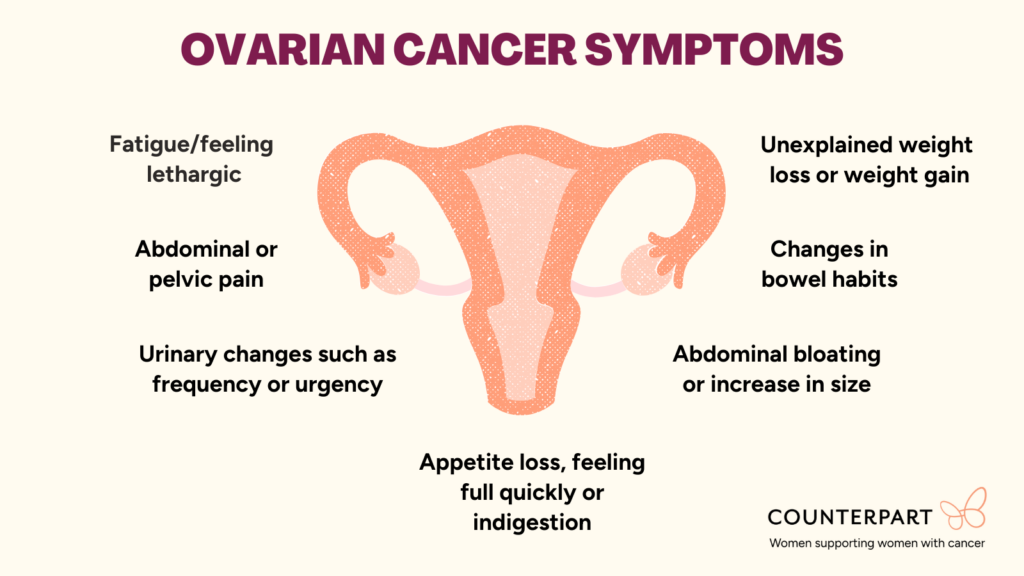Ovarian Cancer Awareness Month is happening now
Every February, Counterpart joins others in acknowledging Ovarian Cancer Awareness Month. We support the important work others are doing to educate women about ovarian cancer. We also use this time to talk about the support and information available to women living with ovarian cancer.
Women supporting other women with cancer
When you have been diagnosed with cancer, sometimes you need to talk to someone who has been there. Our Peer Support Volunteers have all women with a lived experience of cancer. They also have been trained to listen and provide emotional or practical support. Depending on what you are looking for, they can help you find information or share what they and other women have found helpful.
Request a call from one of our volunteers.
Other ways we support women with ovarian cancer
On our Webinar recordings page, you can watch videos of talks given by experts. These cover a lot of topics, including:
- Ovarian Cancer Australia support services
- Pelvic floor after gynaecological cancer
- Gynaecological cancer treatments and trials
- Healthy eating after cancer
- Cancer-related fatigue.
You might find our ovarian cancer Navigator helpful if you have been diagnosed with ovarian cancer. It can help you to find reliable, evidence-based information for each stage in the cancer experience (newly diagnosed, during treatment, after treatment, and if you have a recurrence).
Know the symptoms
Ovarian cancer symptoms can be very vague. Many of the symptoms can also be caused by other conditions, especially in the early stages. This disease affects hundreds of women in Victoria each year. Still, many take a long time to get a diagnosis. That is why Ovarian Cancer Awareness Month is all about letting women know the symptoms.

According to Cancer Australia, ovarian cancer symptoms can include:
- feeling bloated
- pain in your abdomen or pelvic area
- loss of appetite, feeling full after eating small amounts, or indigestion
- changes to your toilet habits, such as difficulty urinating, needing to go urgently, or changes in bowel habits
- unexplained weight loss or gain
- feeling tired for no reason.
You should speak to your doctor if you are concerned about any of these symptoms. Think about using Ovarian Cancer Australia’s symptom diary. This can help you keep track of symptoms and present them to your doctor.
Find more information










